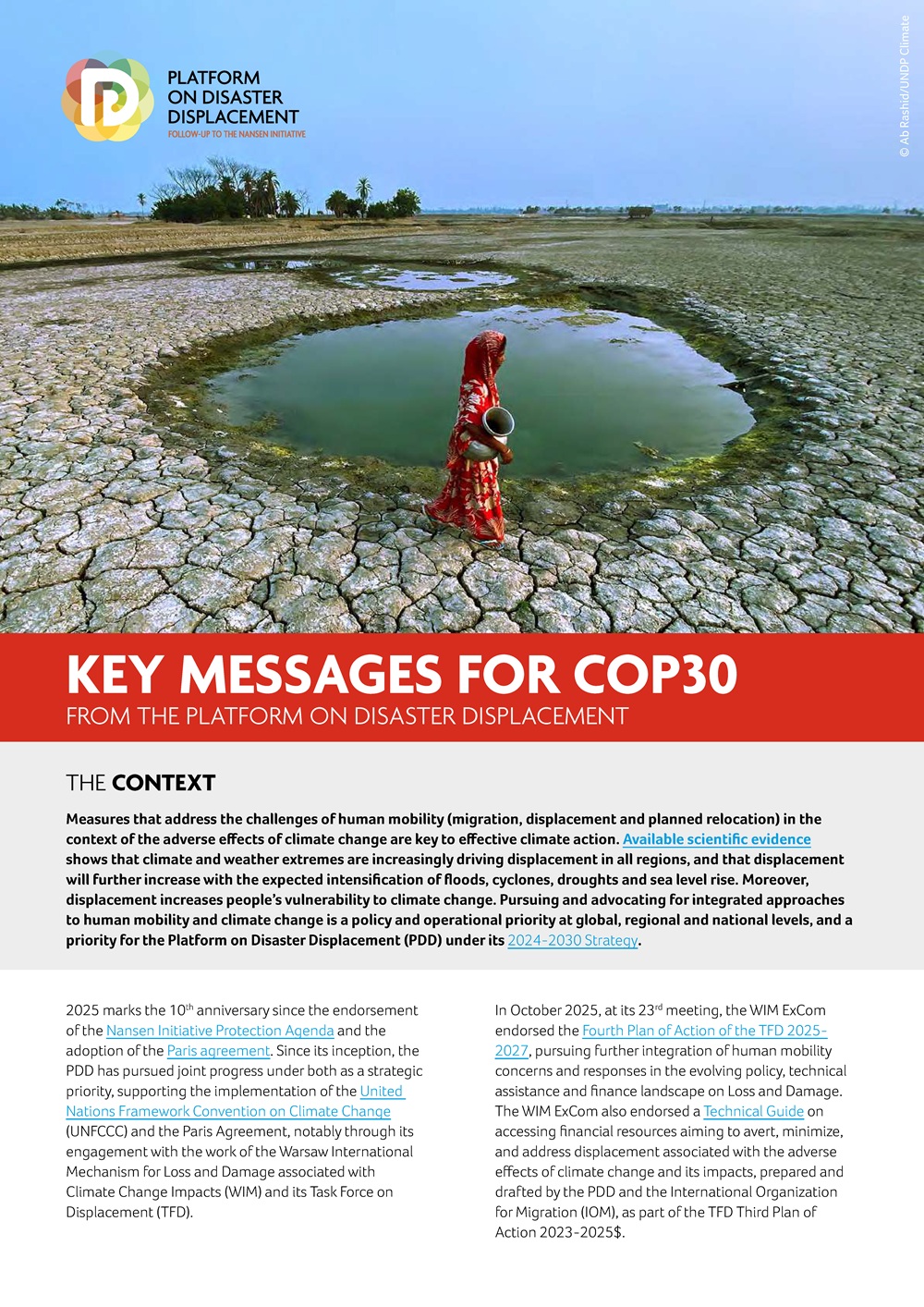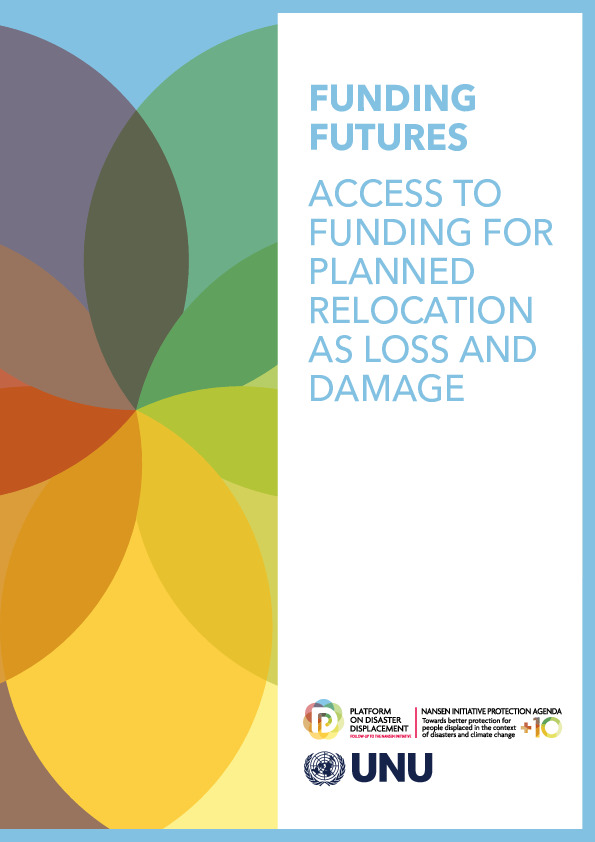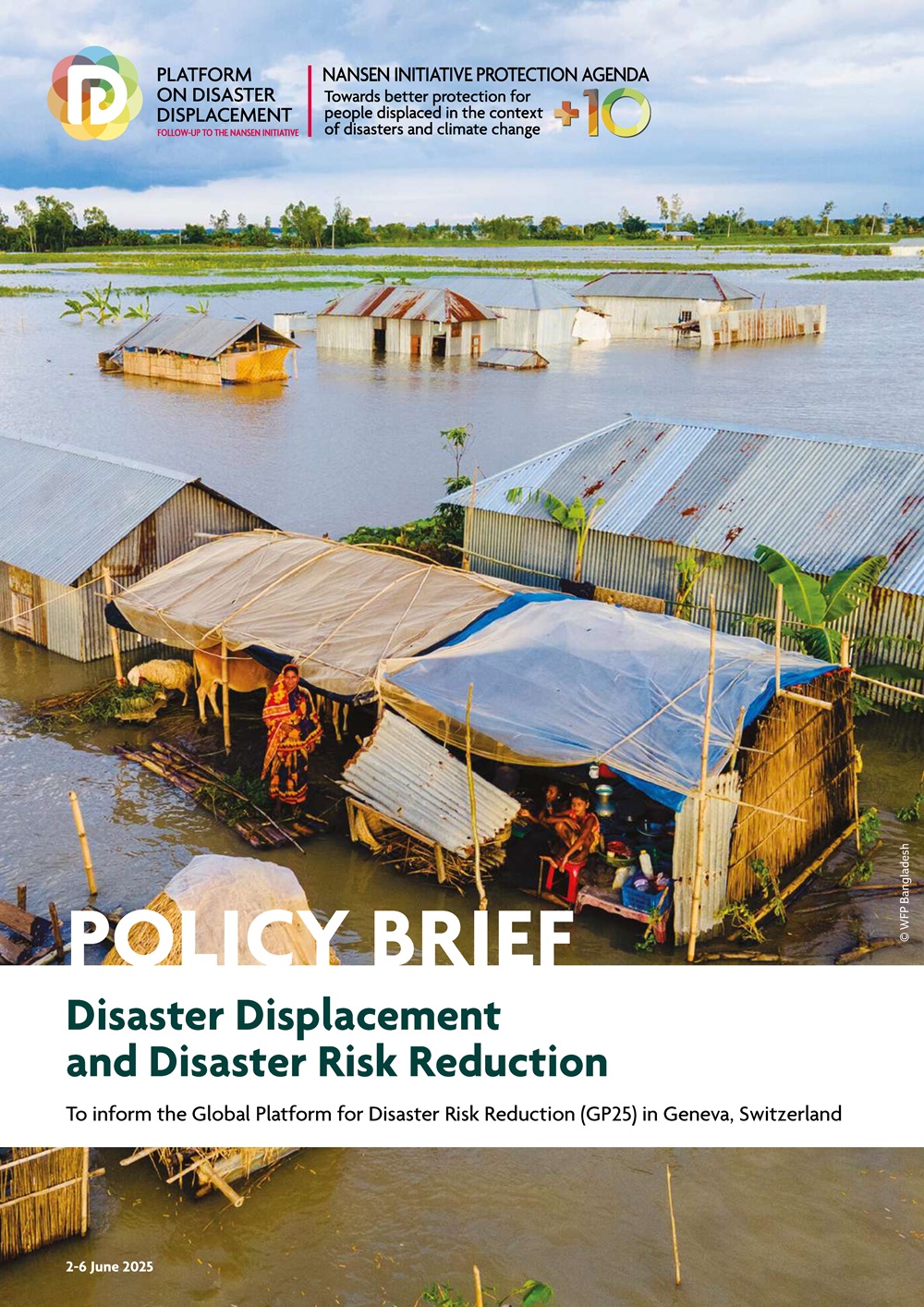Project Fact Sheet – Action and Support to Avert, Minimize and Address Displacement Related to the Adverse Effects of Climate Change
PDD/NORAD
All over the world, vulnerable people and communities are being affected by climate change. Displacement is an increasingly frequent consequence of sudden and slow-onset hazards associated with climate change. Displacement also has the potential to multiply and extend the risks people face, and the economic, social and environmental impacts they suffer. Making displacement, its costs and corresponding protection needs integral to all efforts to avert, minimize and address loss and damage induced by climate change should be a priority for all actors and at all levels.
Displacement has been recognized as a global priority for climate change policy under the United Nations Framework Convention on Climate Change (UNFCCC), through the work the Warsaw International Mechanism for Loss and Damage (WIM) and its Task Force on Displacement (TFD), and the Santiago Network for Loss and Damage (SNLD). Improving understanding of the issue, strengthening relevant policy frameworks and institutional capacities, and promoting effective operational responses will require bringing together actors and resources across sectors, including Disaster Risk Reduction, protection of human rights, governance of human mobility, development, and humanitarian, transition and recovery assistance.
The Platform on Disaster Displacement (PDD) is implementing the Project to Avert, Minimize and Address Disaster Displacement (PAMAD) in order to:
- Develop a better understanding of displacement in the context of losses and damages associated with climate change;
- Support measures aimed at averting, minimizing and addressing displacement and its impacts for vulnerable people and communities.
The project will be implemented in four countries in different regions, each facing specific challenges and impacts due to climate change and related displacement. These countries are Bangladesh, Fiji, Guatemala and Kenya. The PDD is engaging its networks and partners to define the exact geographic scope of the activities. In each country, the PDD will collaborate with key ministries and authorities, such as Ministries of Environment, Foreign Affairs and Interior, Disaster Management Agencies, local actors (NGOs, civil society representatives, researchers and academics) and international organizations.
The project will be implemented over a period of three years. A preliminary inception phase, ending in August 2022, will allow PDD to identify priorities and plan work at national level. During this phase, PDD and national project partners will organize multi-stakeholder consultations and needs assessments to identify each country’s priorities and to develop national project plans.
The implementation phase started in September 2022. Work will primarily take place at the national level, but PAMAD’s outcomes and lessons learned will support ongoing regional and global efforts – including the establishment and implementation of the Santiago Network. The project team at global and national level will receive technical expertise and guidance through the PDD’s established network of partners, the members of the TFD and other WIM expert groups, and other relevant experts and practitioners.
This project is made possible through the generous support of the Norwegian Agency for Development Cooperation (Norad).
For any additional information, reach out to PDD at info@disasterdisplacement.org or Lorenzo Guadagno at lorenzog@unops.org




